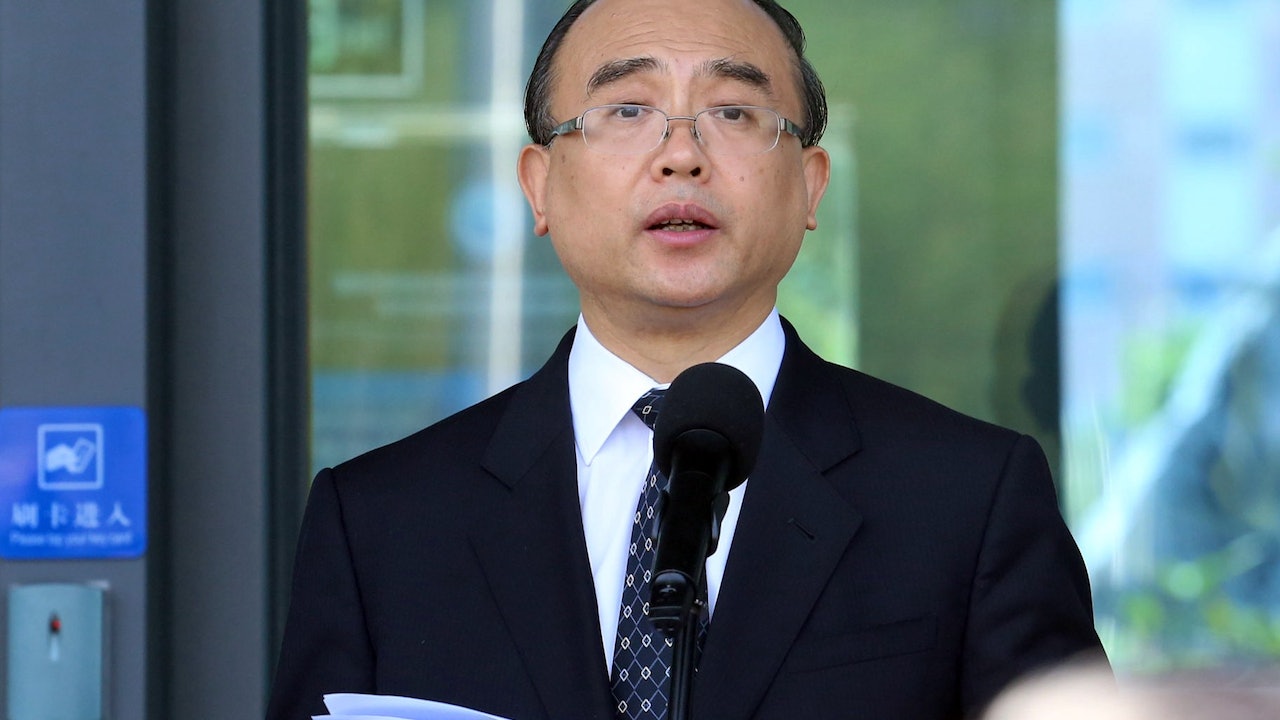Introduction: Prime Ministers originate from prefectures and counties. Frontier officials are unique and key existences in Chinese politics. They not only govern one side, influence the governance of the region they are in, but are often the main source of national leaders.
In the past two to three years, the leadership of the party and government in 31 provinces, autonomous regions and municipalities in the mainland (62 people in total) has basically completed the transition. Taking stock and analyzing their data will help us understand the operating logic of Chinese politics.
This article attempts to take stock of the situation of local officials from the perspective of promotion rules.
Before that, it is necessary to give a moderate introduction to the bureaucracy of Chinese officialdom.
To put it simply, the promotion of cadres has to go through staff member, deputy department level, principal department level, deputy county department level, county department level, deputy bureau level, department bureau level, deputy provincial and ministerial level, provincial and ministerial level, and deputy national level. , Positive national level.
If we take a closer look, it is also at the deputy bureau level. Take a certain prefecture-level city as an example. This means that a person often has to go through a long period of assessment and selection from the moment he is promoted to the mayor and secretary of the municipal party committee with real power.
Because of this, it is said that in the Chinese officialdom, the promotion of officials is like a long and fierce competition. From ordinary staff members to provincial party secretary and governor who are the main training echelons of national leaders, I don’t know how many layers and how many levels they have to go through. Years of assessment and selection, I don't know how many people I have to compete with, the difficulty is beyond imagination.
The two sessions|The top officials in Xinjiang are from Shandong, and only one is from Guangdong. The promotion of officials is like a long and fierce competition. I hope China will go back
This is actually a talent selection system with unique Chinese characteristics, which is similar to the imperial examination system and talent selection in traditional society.
If a Chinese aspires to be an official, he should usually try his best to get into a good university, perform well during the university, and then have to pass the highly competitive and rigorous civil service examination before he can enter the officialdom. rise.
Of course, practice brings true knowledge. Good grades in school are not the only factor. There are also some civil servants who are not so outstanding in school but have worked hard to get tickets for official careers.
This is just the starting point, the first step in a long competition.
The bureaucratic system is characterized by the fact that “official officials crush people to death at the first level”, and there are often significant differences between different levels. Every promotion, even if it is only a promotion of different positions within the same level, such as from ordinary deputy mayor to executive deputy mayor, from the municipal party committee From the head of the organization to the deputy secretary of the municipal party committee, the competition for promotion is relatively fierce. It can be said that "pass five passes and cut six generals."
This means that any person with political ambitions must prepare for a long and fierce competition from the moment he decides to enter an official career. It will be a test for decades.
The current secretary of the Beijing Municipal Party Committee, Yin Li, is a doctor of medicine. He first worked in the State Council's research office for many years, and then was transferred to the health system.
(profile picture)
Those who stand out in this process must have some advantages, such as extraordinary talent, outstanding ability, fate, and high-level appreciation.
Because of this, even if there is inbreeding in Chinese official circles, and bad money drives out good money, the problem of local power familyization described in Peking University’s doctoral thesis "Zhongxian Cadres" exists to a certain extent, but it is undeniable Yes, China's officialdom has indeed gathered a large number of talents, many of whom are talented and virtuous doers, so that Chinese officialdom has an aspect of political meritocracy.
At present, there are 62 top party and government leaders in 31 provinces, autonomous regions and municipalities, and their promotion patterns are representative.
First, they all went to universities or junior colleges after Deng Xiaoping decided to restore the college entrance examination in 1977. Their knowledge structure is relatively complete. beneficiaries of the "professionalization" cadre policy.
The starting point of their official career was the early stage of reform and opening up, when the whole society began to return to common sense and rationality, and valued science, technology, and talents.
Chen Jining, the current secretary of the Shanghai Municipal Party Committee, graduated from a top-ranking university with a Ph.D.
The picture shows that on March 9, 2017, a press conference was held at the News Center of the Fifth Session of the Twelfth National People's Congress. Chen Jining, then Minister of Environmental Protection, was answering questions from reporters.
(Xinhua News Agency)
Second, most of them were assigned to work in the system after they went to university or college. They started as grassroots cadres and worked in a certain unit for a long time, such as a local state-owned enterprise, a local government agency, or a local family. Research institutions or public institutions (including schools and hospitals), and a certain subordinate department of a national ministry will become department-level cadres around the age of 30, and then have more opportunities to be transferred.
In this sense, around the age of 30 is a very important age threshold for official promotion.
If you can't pass the assessment early at this stage and become a department-level cadre, the possibility of becoming a feudal official in the future is very low.
Third, they generally become bureau-level cadres around the age of 40, or even mayors, municipal Party committee secretaries, directors, and bureau chiefs at the bureau-level, thereby gaining more training opportunities for transfer and enriching political experience.
Fourth, they usually enter the provincial and ministerial level around the age of 50 and experience different positions before they can become the secretary of the provincial party committee or governor before the retirement age.
If it is a political dark horse, the promotion speed is faster, and even at the age of 50, it is already a big official in Xinjiang.
For example, Yin Yong, the 54-year-old mayor of Beijing, and Chen Jining, the 59-year-old secretary of the Shanghai Municipal Party Committee, both graduated with Ph.
Fifth, most provincial party secretaries are promoted by governors, and most provincial governors have experience as deputy provincial party secretaries or deputy provincial and ministerial city party secretaries.
Generally speaking, the great officials in Xinjiang are the winners, the best and the lucky ones in the long and fierce competition within the huge bureaucratic system in mainland China.
From young students, clerks who have just entered the official career, to the mayor and secretary of the municipal party committee who are in charge of the government, and then to the governor and secretary of the provincial party committee who have become officials in Xinjiang, they have experienced many tests and trials in life.
This is why many Chinese current affairs analysts refer to the feudal officials as a group close to politicians. The ability and vision formed by their long-term training directly affect the quality of Chinese governance.
Xu Lin is in charge of Guizhou, Chen Yiqin has another appointment, Guizhou has become another highland in China's political arena, and Li Qiang, the prime minister-designate, Zhejiang's economic history: the ultimate goal of reform and development is to benefit the people.















